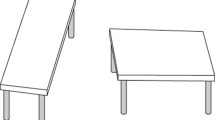Abstract
The traditional view that all logical truths are metaphysically necessary has come under attack in recent years. The contrary claim is prominent in David Kaplan’s work on demonstratives, and Edward Zalta has argued that logical truths that are not necessary appear in modal languages supplemented only with some device for making reference to the actual world (and thus independently of whether demonstratives like ‘I’, ‘here’, and ‘now’ are present). If this latter claim can be sustained, it strikes close to the heart of the traditional view. I begin this paper by discussing and refuting Zalta’s argument in the context of a language for propositional modal logic with an actuality connective (section 1). This involves showing that his argument in favor of real world validity his preferred explication of logical truth, is fallacious. Next (section 2) I argue for an alternative explication of logical truth called general validity. Since the rule of necessitation preserves general validity, the argument of section 2 provides a reason for affirming the traditional view. Finally (section 3) I show that the intuitive idea behind the discredited notion of real world validity finds legitimate expression in an object language connective for deep necessity.
Similar content being viewed by others
References
T. Baldwin (2001) ArticleTitle‘On Considering a Possible World as Actual’ Proceedings of the Aristotelian Society 75 IssueID(suppl) 157–174
D. Chalmers (1996) The Conscious Mind: In Search of a Fundamental Theory Oxford U.P New York
J.N. Crossley L. Humberstone (1977) ArticleTitle‘The Logic of ‘Actually” Reports on Mathematical Logic 8 11–29
M. Davies (1981) Meaning, Quantification, Necessity: Themes in Philosophical Logic Routledge and Kegan Paul London
M. Davies (2004) ArticleTitle‘Reference, Contingency, and the Two-Dimensional Framework’ Philosophical Studies 118 83–131 Occurrence Handle10.1023/B:PHIL.0000019544.39800.50
M. Davies L. Humberstone (1980) ArticleTitle‘Two Notions of Necessity’ Philosophical Studies 38 1–30 Occurrence Handle10.1007/BF00354523
G. Evans (1979) ArticleTitle‘Reference and Contingency’ The Monist 62 161–189
G. Evans (2004) ArticleTitle‘Comment on ‘Two Notions of Necessity” Philosophical Studies 118 11–16 Occurrence Handle10.1023/B:PHIL.0000019541.80901.ad
M. Gomez-Torrente (2000) ArticleTitle‘A Note on Formality and Logical Consequence’ Journal of Philosophical Logic 29 529–539 Occurrence Handle10.1023/A:1026510905204
D. Gregory (2001) ArticleTitle‘Completeness and Decidability Results for Some Propositional Modal Logics Containing ‘Actually’ Operators’ Journal of Philosophical Logic 30 57–78 Occurrence Handle10.1023/A:1017579410231
G.E. Hughes M.J. Cresswell (1996) A New Introduction to Modal Logic Routledge London
L. Humberstone (2004) ArticleTitle‘Two-Dimensional Adventures’ Philosophical Studies 118 17–65 Occurrence Handle10.1023/B:PHIL.0000019542.43440.d1
D. Kaplan (1989a) ‘Demonstratives’ J. Almog J. Perry H. Wettstein (Eds) Themes from Kaplan Oxford U.P. New York 481–563
D. Kaplan (1989b) ‘Afterthoughts’ J. Almog J. Perry H. Wettstein (Eds) Themes from Kaplan Oxford U.P. New York 565–614
S. Kripke (1980) Naming and Necessity Harvard, U.P. Cambridge
S. Shieh (2001) ‘Meaning, Rigidity, and Modality’ J. Floyd S. Shieh (Eds) Future Pasts Oxford, U.P. New York 369–392 Occurrence Handle10.1093/019513916X.003.0019
R. Stalnaker (2001) ArticleTitle‘On Considering a Possible World as Actual’ Proceedings of the Aristotelian Society 75(suppl) 141–156 Occurrence Handle10.1111/1467-8349.00083
E. Zalta (1988) ArticleTitle‘Logical and Analytic Truths that are not Necessary’ Journal of Philosophy 85 57–74 Occurrence Handle10.2307/2026992
Author information
Authors and Affiliations
Corresponding author
Additional information
Earlier versions of this paper were read at the universities of Graz, Maribor, and Salzburg, and at a workshop on the philosophy of logic at the National Autonomous University of Mexico (UNAM) in Mexico City. My thanks to those present at these events for many helpful suggestions. Thanks are also due to an anonymous referee for Philosophical Studies.
Rights and permissions
About this article
Cite this article
Hanson, W.H. Actuality, Necessity, and Logical Truth. Philos Stud 130, 437–459 (2006). https://doi.org/10.1007/s11098-004-5750-8
Issue Date:
DOI: https://doi.org/10.1007/s11098-004-5750-8



